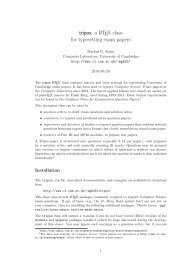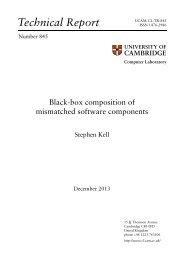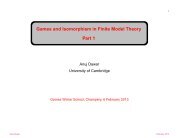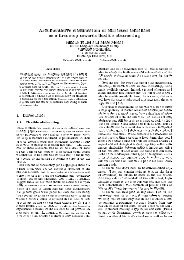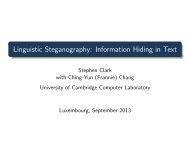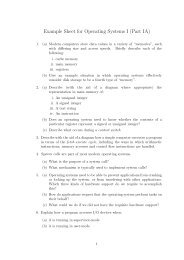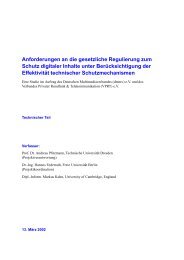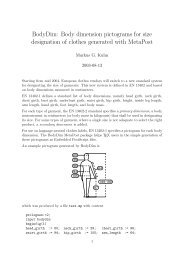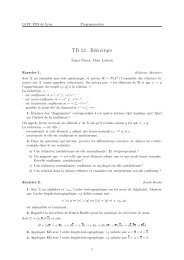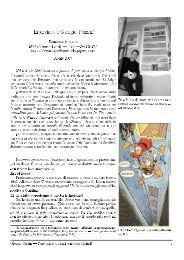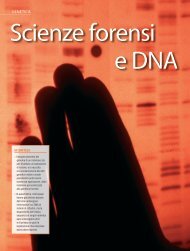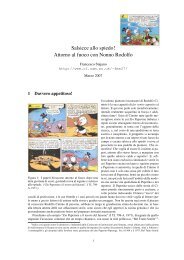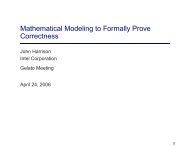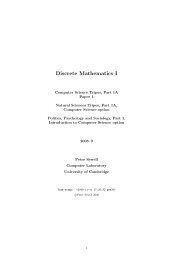Radical innovation: crossing knowledge boundaries with ...
Radical innovation: crossing knowledge boundaries with ...
Radical innovation: crossing knowledge boundaries with ...
Create successful ePaper yourself
Turn your PDF publications into a flip-book with our unique Google optimized e-Paper software.
disciplinary theory bases or terminology. Workshop days were preceded by a dinner,<br />
that all participants were encouraged to attend if possible. This was intended both to<br />
maintain the research team and to establish a social dynamic allowing open<br />
questioning of principles and opinions at the workshop itself.<br />
The workshop structure consisted simply of presentations by each of four expert<br />
witnesses, each of which was followed by open discussion <strong>with</strong> the research team and<br />
other invited experts. Presentations could take the amount of time that the witness<br />
considered necessary – generally between 40 and 90 minutes. During discussion,<br />
particular care was taken to elicit responses from the other expert witnesses, in order<br />
to explore differences in their perspectives and experiences. The day closed <strong>with</strong> an<br />
reflective contribution invited from an expert able to identify any overarching<br />
concerns that might not have been anticipated in the way the project concerns had<br />
been framed by the core team.<br />
All presentations and discussion were captured using professional recording<br />
equipment, and professionally transcribed for review and analysis. Members of the<br />
research team also made their own notes, some using a template derived from the<br />
preliminary analytic framework as presented in the graphical overview.<br />
11.5. Rubric for review of transcripts and notes<br />
The majority of team members had a general orientation toward “grounded theory”,<br />
which is to say that source material was taken as the starting point for theory<br />
development, rather than as data against which to test prior hypotheses. The most<br />
important precaution for rigour of analysis is that of “constant comparison” - that<br />
theoretical claims should be tested against the original data from the outset. The<br />
following questions were asked when analysing workshop transcripts.<br />
Reflection on Case Studies: How does this expert witness present themselves? Why<br />
was this study chosen? Could they have chosen something else? Is there any direct<br />
critique of our “framework”? Are there issues raised that are not anticipated in the<br />
framework? Capture any direct guidance, “advice to young people”.<br />
Reflection on Individual Witnesses: Does their questioning of other expert witnesses,<br />
or responses to cross examination, reveal general concerns that extend beyond the<br />
specifics of the case study?<br />
Generation of Cross-Cutting Themes: What was the “tone” of each workshop? What<br />
points of consensus emerged in discussion? What were the centres of debate, or of<br />
provocative interventions? What parts of our framework are emerging as most<br />
significant? What completely new perspectives are not accounted for by any of the<br />
above?<br />
Innovation and Interdisciplinarity 99



